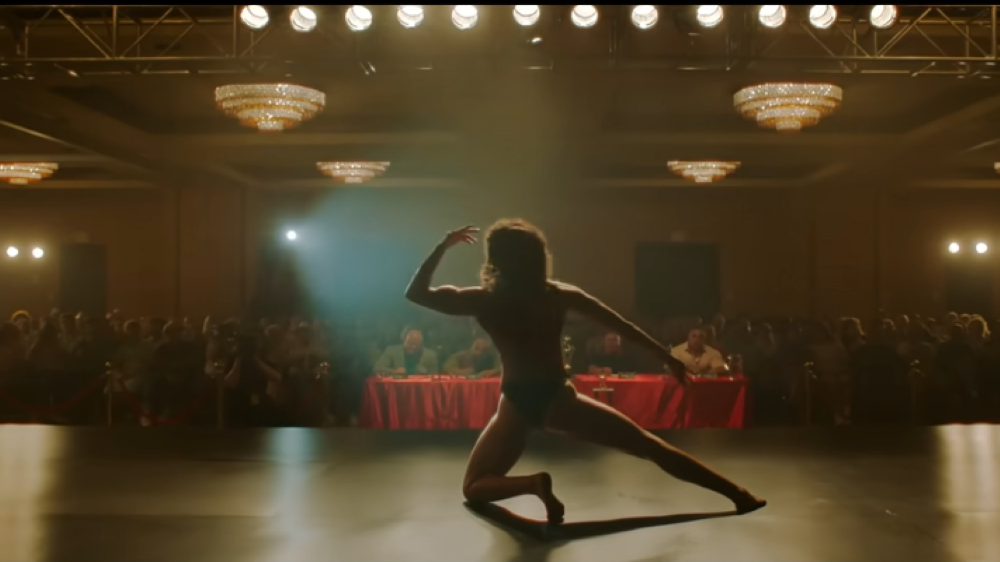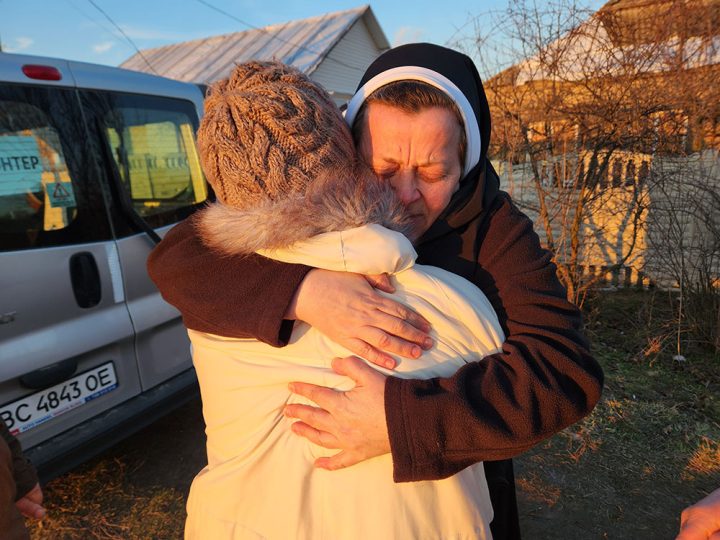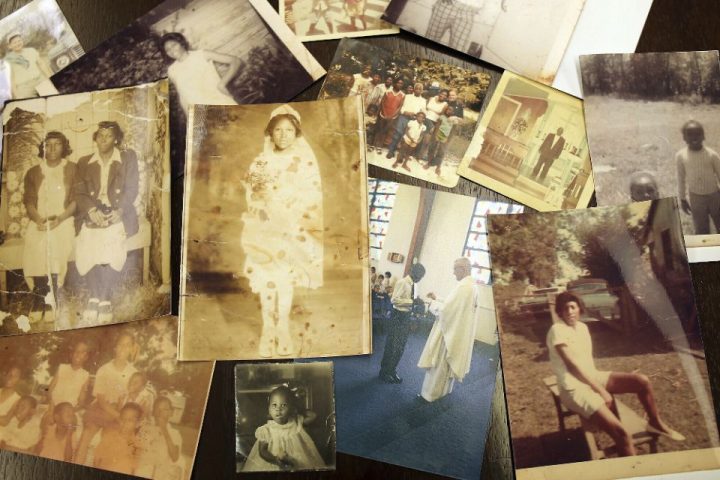
You won’t find a better visual encapsulation of 1 Corinthians’ « your body is a temple » than in the opening sequence of director Rose Glass’ revenge thriller « Love Lies Bleeding. »
Set in 1980s New Mexico, in the type of small desert town that seems to be comprised only of vast stretches of empty road, viewers watch a tour of a gymnasium managed by the reclusive Lou (Kristen Stewart). Glass and cinematographer Ben Fordesman imbue religious imagery into this documentation, framing the fitness patrons’ care of their bodies as an act of faith and love.
Set to Clint Mansell’s haunting score, there’s a worshipful and intimate beholding of what the camera captures: from drops of sweat sliding down a pulsating bicep to a group of indoor cyclists breathing heavily in discordant rhythm. Between these workouts, Glass weaves in shots of the posters adorning the gym’s walls, loaded with cheesy motivational phrases like « Pain is weakness leaving the body. » There’s an almost liturgical call and response dynamic in this editing and a Scripture like reverence for these aphorisms. What we witness is more than just a community, but a congregation amidst prayer and worship. It is spiritual imagery grafted upon characters caught in the throes of desire.
Ultimately, « Love Lies Bleeding » explores the violent power of affection, in particular the toll such passions place on our bodies. To commit to someone is a messy and beautiful thing and between the barbells and exercise mats, Glass tells a cautionary tale on the cost of this commitment. Her film is a sweaty and bloody exploration of what is lost and gained when two try to become one flesh.
Things take a turn to the passionate and incendiary when Jackie (Katy O’Brian), a bodybuilder on her way to a competition in Las Vegas, steps into Lou’s gym. To say Lou falls head over heels for Jackie is an understatement; when she notices two gym patrons talking to Jackie, out of jealousy, Lou announces that the gym is closed and orders everyone to leave. Jackie is one of the last to step out and just before she does, she and Lou lock eyes. The two are standing on opposite sides of the gym, each illuminated by a single bulb above them as if to symbolize how, in the darkness and dreariness of life, they find the light in each other.
The two soon strike up a relationship and Glass tenderly chronicles their love as they dote on each other throughout their quotidian tasks. These scenes are shot with a handheld camera, giving a sense that we viewers are in the room with them in their intimacy. In these moments the stress and pain of the outside world comes to a standstill as the two revel and rest in the unique sense of being known and held in the gaze of another.
However, there is a dark side to such love, and Glass spends the rest of the film exploring the consequences of total devotion. Jackie and Lou’s love is complicated by the fact that Lou Sr. (Ed Harris) is a crime lord who smuggles illegal weaponry into New Mexico. As much as Lou wants to keep this part of her life hidden — or at the very least, dictate for herself how much Jackie learns about her past — the closer the two get, the more Jackie is pulled into the violent orbit of her life. It implodes in a macabre manner when out of love and in a steroid-induced daze and state of rage, Jackie murders Lou Sr.’s operative.
It is the aftermath of this grisly murder where Glass’ film dives into the messiness that comes when we embed our lives with others and how ascribing salvific qualities to those whom we hold most dear ultimately undoes the very bonds of our relationships.
After Lou disposes of the body, she tells Jackie that they have to lay low as the cops (who are all on Lou Sr.’s payroll) will do everything they can to find the culprit. The two get into an argument as Jackie realizes that this means she can’t attend the bodybuilding competition that she dreamed of. Her violent choice, though made out of love, comes at great cost. Jackie and Lou realize that in order to be with each other, they will have to sacrifice and step into the mess of each other’s lives, and such dedication is costly.
As Lou Sr.’s forces close in on the two, Lou finds herself returning the favor as she murders more than a few lackeys to protect Jackie. These actions intertwine Jackie and Lou’s lives in ways not easily untangled. This is captured in another surreal moment when Jackie, against Lou’s wishes, decides to leave town to attend the bodybuilding competition. During her showcase, Mansell’s score swells rapturously as if to cheer her on before the scene cuts to a shot of a victim Jackie brutally murdered. Jackie, haunted by what’s she’s done, stumbles and breaks form. She begins convulsing and in a surreal moment, vomits up Lou onto the bodybuilding stage. It’s a clever showcase of how the two are involved in such a way in each other’s lives that they can’t easily separate from each other. After watching « Love Lies Bleeding, » another verse came to mind: the apostle Paul’s famed description of love in 1 Corinthians 13:7: Love « bears all things, believes all things, hopes all things, endures all things. »
Even amidst the carnage, Jackie and Lou’s love for one another embodies aspects of this. The tragedies that unfold are a reminder that love transforms all who are involved. It requires you to give something of yourself, and you can’t hope to walk away unchanged after giving of yourself so deeply to another.
In this way, the film both celebrates the power of affection but also reminds us to be wary about who and what we give the totality of ourselves. If you’re going to love someone, do it fully and well. But remember to count the cost.



